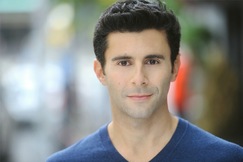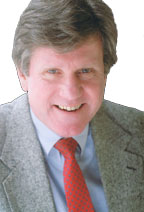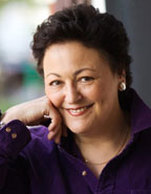
The process of recording an audiobook: From prep to the studio. And why narrating is called work.
Working as an audiobook narrator is, quite honestly, a fantastic job. Every time I am asked to bring an author’s words to life, I feel extremely grateful. I have a thousand things to say about the work and its challenges, but for the sake of concision, I’d like to focus here on the process of recording an audiobook, from start to finish.
Preparation
Before I can record, I prepare the script by reading the entire book, noting essential clues for performance. I mark the dialogue using a unique letter or symbol for each character so I can quickly switch into their voice. As I read through, I create a list of characters, along with any descriptions offered by the author (such as “Rachel was a thin woman with a high, friendly voice.”)
If I’m unsure of a word, I’ll research it and write the pronunciation in the margin. I circle or underline any emotional indicators (such as “John’s voice shook as he said…” or “Angela whispered urgently.”) Often, this type of direction comes after the person speaks, so if it is not marked in some way, you risk saying the dialogue before you get the direction, which means a re-take.
Once the script is marked up, I create distinct voices for everyone in my character list, using the author’s descriptions to help me wherever possible. All this work is completed before I head into the first recording session.
It took me over fourteen hours to prep my very first audiobook! Now I’ve recorded more than one-hundred books, and my process is a lot faster, but still time consuming. Nonetheless, I believe that this kind of prep work is necessary for a good performance. Sometimes an author won’t mention until page 342 that one of the main characters has a Lithuanian accent! Gotta read the book first.
In the Studio
Working in the recording booth requires a great deal of focus and stamina. An audiobook recording session lasts about six hours, and an average novel requires between three and six sessions to complete, depending on your reading precision. Although my preparation lets me know what is going to happen next in the book, I always try to tell the story as if it is happening right now, this second. And even though it requires a huge amount of concentration and constant attention to the action on the page, this kind of discovery in performance (staying “in the moment”) keeps the listener engaged and imbues the story with freshness and life. Or at least, that’s my goal!
That’s why they call it Work.
For me, one of the most challenging aspects of audiobook narration is reading a story that I don’t like, or that is badly edited, or just plain boring. Hardly any of the books I narrate are books that I would choose to read. Sometimes, though, this turns out to be a pleasure. I’ve discovered some hidden gems that I might otherwise have missed!
But even when faced with a book I abhor, I still invest myself in the characters, stay focused, give the performance everything I’ve got. I owe this to the author, whose art I’m bringing to life; the producer, who was kind enough to cast me; and the listener, who wants to have a good experience. It’s certainly a challenge but it’s part of being a professional. And in my humble opinion, even the worst day in a recording studio beats the heck out of a million other jobs.
Which brings me back to my original point; working as an audiobook narrator is a fantastic job. I feel lucky and grateful every day. And yes, it’s more than luck; I began stage acting at age six and I worked incredibly hard to become a full-time voice actor. Now that I’m living my dream, I don’t take one moment for granted.
Nicola Barber’s voice can be heard on TV and radio commercials worldwide, popular video games such as World of Warcraft, and even some talking toys. But her true passion lies in bringing to life the characters and scenes in novels, a talent for which she has twice received the audiobook industry’s highest honor: The Audie Award. In 2013, Nicola received an Audie nomination in the top category, Solo Female Narration, for “Call The Midwife” by Jennifer Worth. Nicola is also a proud recipient of multiple “Earphones Awards” for outstanding audiobook narration.
Working as an audiobook narrator is, quite honestly, a fantastic job. Every time I am asked to bring an author’s words to life, I feel extremely grateful. I have a thousand things to say about the work and its challenges, but for the sake of concision, I’d like to focus here on the process of recording an audiobook, from start to finish.
Preparation
Before I can record, I prepare the script by reading the entire book, noting essential clues for performance. I mark the dialogue using a unique letter or symbol for each character so I can quickly switch into their voice. As I read through, I create a list of characters, along with any descriptions offered by the author (such as “Rachel was a thin woman with a high, friendly voice.”)
If I’m unsure of a word, I’ll research it and write the pronunciation in the margin. I circle or underline any emotional indicators (such as “John’s voice shook as he said…” or “Angela whispered urgently.”) Often, this type of direction comes after the person speaks, so if it is not marked in some way, you risk saying the dialogue before you get the direction, which means a re-take.
Once the script is marked up, I create distinct voices for everyone in my character list, using the author’s descriptions to help me wherever possible. All this work is completed before I head into the first recording session.
It took me over fourteen hours to prep my very first audiobook! Now I’ve recorded more than one-hundred books, and my process is a lot faster, but still time consuming. Nonetheless, I believe that this kind of prep work is necessary for a good performance. Sometimes an author won’t mention until page 342 that one of the main characters has a Lithuanian accent! Gotta read the book first.
In the Studio
Working in the recording booth requires a great deal of focus and stamina. An audiobook recording session lasts about six hours, and an average novel requires between three and six sessions to complete, depending on your reading precision. Although my preparation lets me know what is going to happen next in the book, I always try to tell the story as if it is happening right now, this second. And even though it requires a huge amount of concentration and constant attention to the action on the page, this kind of discovery in performance (staying “in the moment”) keeps the listener engaged and imbues the story with freshness and life. Or at least, that’s my goal!
That’s why they call it Work.
For me, one of the most challenging aspects of audiobook narration is reading a story that I don’t like, or that is badly edited, or just plain boring. Hardly any of the books I narrate are books that I would choose to read. Sometimes, though, this turns out to be a pleasure. I’ve discovered some hidden gems that I might otherwise have missed!
But even when faced with a book I abhor, I still invest myself in the characters, stay focused, give the performance everything I’ve got. I owe this to the author, whose art I’m bringing to life; the producer, who was kind enough to cast me; and the listener, who wants to have a good experience. It’s certainly a challenge but it’s part of being a professional. And in my humble opinion, even the worst day in a recording studio beats the heck out of a million other jobs.
Which brings me back to my original point; working as an audiobook narrator is a fantastic job. I feel lucky and grateful every day. And yes, it’s more than luck; I began stage acting at age six and I worked incredibly hard to become a full-time voice actor. Now that I’m living my dream, I don’t take one moment for granted.
Nicola Barber’s voice can be heard on TV and radio commercials worldwide, popular video games such as World of Warcraft, and even some talking toys. But her true passion lies in bringing to life the characters and scenes in novels, a talent for which she has twice received the audiobook industry’s highest honor: The Audie Award. In 2013, Nicola received an Audie nomination in the top category, Solo Female Narration, for “Call The Midwife” by Jennifer Worth. Nicola is also a proud recipient of multiple “Earphones Awards” for outstanding audiobook narration.


